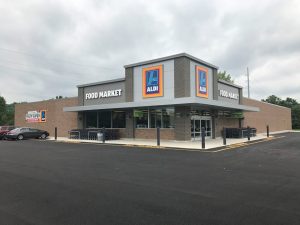Trish Bennett, Editor
CIRCLEVILLE – Members of the Second Baptist Church congregation will host a prayer vigil Friday to address recent tragedies and pray for a better world.
The event, organized by Pastor Derrick K. Holmes, will be held at 6 p.m. Friday at the Pickaway County Courthouse. The public is invited to attend.
Holmes said the vigil was inspired by national events and continued racial tensions nationwide.
“We’re seeing what I see as senseless, needless deaths of African-Americans and police officers losing their lives while attempting to protect and serve,” Holmes said. “If anyone ought to be interceding, it ought to be the people of God. It ought to be Christians.”
Holmes said he would like to see local residents move past denominational separations and come together at the vigil to seek God’s blessing and guidance.
He said he has no idea how many people to expect at the event, but the spirit matters more than the number.
“While we want it to be something where as many people as possible come out, we’re more concerned with the spirit of the endeavor,” Holmes said. “If it’s 60 people praying, then great. If it’s 200, great. And if it’s just three or four people committed to seeking God in serious prayer for our nation and for the families affected by these events, we’re OK with that, too.”
Holmes said the vigil will begin with the singing of “How Great Is Our God,” followed by a few words offering context for the reason and perspective of the gathering, but the concentration will be unity through prayer.
Holmes said the vigil is the first of many efforts Second Baptist Church members will be making to help identify and improve race relations.
“I think Christians need to be in the middle of that,” Holmes said. “I think it starts with prayer.”
Second Baptist Church, located on Mill Street, has a long history of leadership in addressing race-related issues. It is recognized by the Ohio Historical Society as the site of an 1870 meeting of 147 African-American men who petitioned the U.S. government to enforce voting rights for African-Americans. The resulting Enforcement Act of 1870 imposed criminal penalties for interference with the right to vote.
This article originally appeared on The Pickaway News Journal










